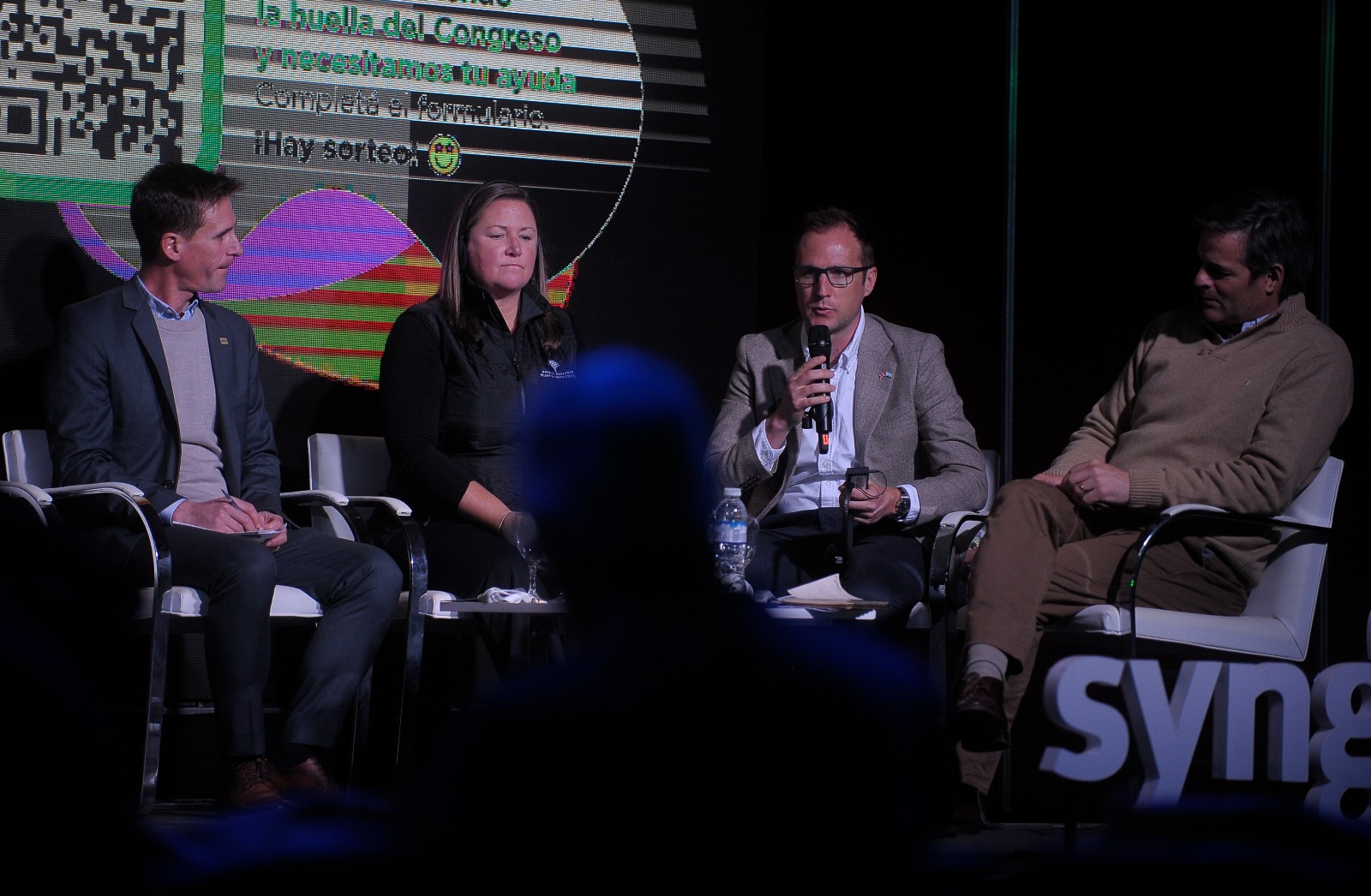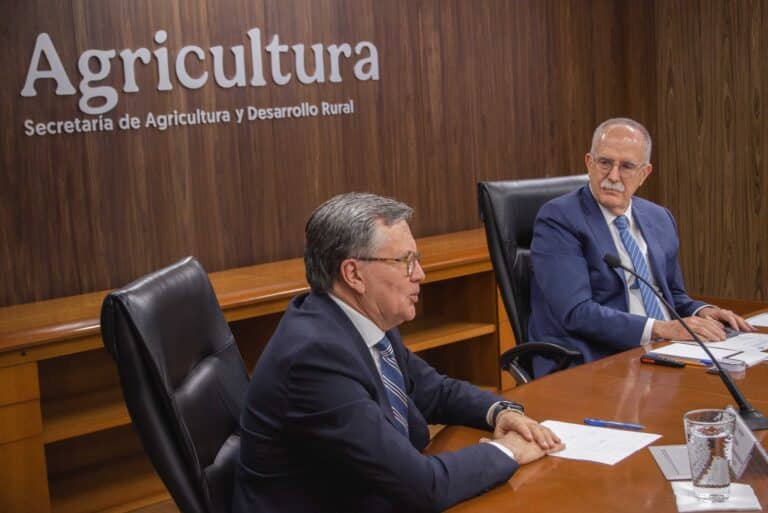The panel on digital innovation and the digitalization of agriculture at the congress was one of four organized jointly by AAPRESID and the Inter-American Institute for Cooperation on Agriculture (IICA), as part of a special section addressing future perspectives and the opportunities that agri-food systems in the Americas offer to producers.

Buenos Aires, 12 August 2024 (IICA) – Agriculture is on the brink of a new transformation process, similar to others it has undergone throughout its history. This time, it involves the integration of digital technologies that will make it increasingly productive and resilient to the challenges posed by climate change and the need to increase productivity.
This topic was discussed in Buenos Aires by experts in digital agriculture during the massive Congress of the Argentine Association of No-till Farmers (AAPRESID), a network that serves as a reference for sustainable production and the incorporation of new technologies in agriculture in Argentina and the region.
The panel on digital innovation and the digitalization of agriculture at the congress was one of four organized jointly by AAPRESID and the Inter-American Institute for Cooperation on Agriculture (IICA), as part of a special section addressing future perspectives and the opportunities that agri-food systems in the Americas offer to producers.
IICA has a strategic alliance with AAPRESID aimed at promoting the dissemination of best practices and the transfer of technologies that increase productivity and sustainability in agriculture in the region.
Before an audience composed of dozens of agricultural producers and AgTech start-up entrepreneurs, the speakers explained the role of digital technologies and AgTech ecosystems as key drivers of the transformation of agri-food systems.
Details were shared about successful experiences and cases in the formation of innovation ecosystems and the development of technologies for agriculture in three countries: Israel, the United Kingdom, and the United States.
Participants included Daniel Werner, Head of Foreign Relations and International Cooperation at Israel’s Ministry of Agriculture and Food Security; Stephanie Regagnon from the Danforth Center in Saint Louis, United States; Mark Jarman from the Agritech Center in the United Kingdom; and Laurens Klerkx, Professor of Agri-food Innovation at the University of Talca, Chile.
Federico Bert, Manager of IICA’s Digitalization of Agrifood Systems Program, provided the Institute’s perspective on the formation of the regional ecosystem. The moderator was Alejo O’Donnell from AAPRESID.
Regagnon discussed the work of the Danforth Center in the U.S. state of Missouri, where 400 people work, and referred to the importance of collective action: “We need more talent to keep moving forward. No company or institution will bring the necessary innovation alone to address the challenges of ensuring food security and adapting to climate change. We need to work together and learn from each other. Our first job is to create a collaborative environment.”
Daniel Werner explained various aspects of the Israeli AgTech ecosystem. “Since the founding of the state of Israel, agriculture has been developed to overcome the scarcity of existing resources, as the climate is arid or semi-arid in 60% of the territory. Thus, the country has transitioned from exporting oranges and tomatoes in the 1960s to being a leader in AgTech exports in the 21st century,” he stated.
Werner mentioned that the use of technologies in agriculture is essential for countries to meet their climate change mitigation commitments, and he discussed the concept of Agriculture 4.0: “This involves a set of technologies focused on the digitalization of agricultural processes. In Israel, it is based on three aspects: precision agriculture, which means placing each seed in its correct place, with the right irrigation and fertilizer; digital agriculture, which involves developing sensors for data collection; and demonstrated sustainability.”
The role of innovation
“We are convinced that technological innovation is what has brought us to where we are today. Thanks to it, farmers have been able to meet the demands for more and better-quality food in recent years,” said Bert.
However, innovation does not arise spontaneously, and we should not just wait for it to happen; we need to go out and seek it. What we need to do is create the conditions for innovation to flow and for agriculture to improve: to be more productive, more efficient, and more environmentally friendly,” added the IICA specialist.
Digital technologies are the most promising and concrete tool to face the challenges that agriculture will face, according to Bert, who noted that although these technologies have been present in agricultural production for 10 or 15 years, the process is still in its early stages.
The transformation is inevitable and we must accompany it to ensure it happens in the best possible way, avoiding the negative externalities that any transformation brings,” Bert said.
He also pointed out that Latin America and the Caribbean have a great opportunity with digitalization due to the diversity of their agriculture, which still has a large margin for technological advancement.
atina y el Caribe cuentan con una gran oportunidad con la digitalización, debido a la diversidad de su agricultura, que todavía tiene un gran margen para tecnificarse.
More information:
Institutional Communication Division.
comunicacion.institucional@iica.int











